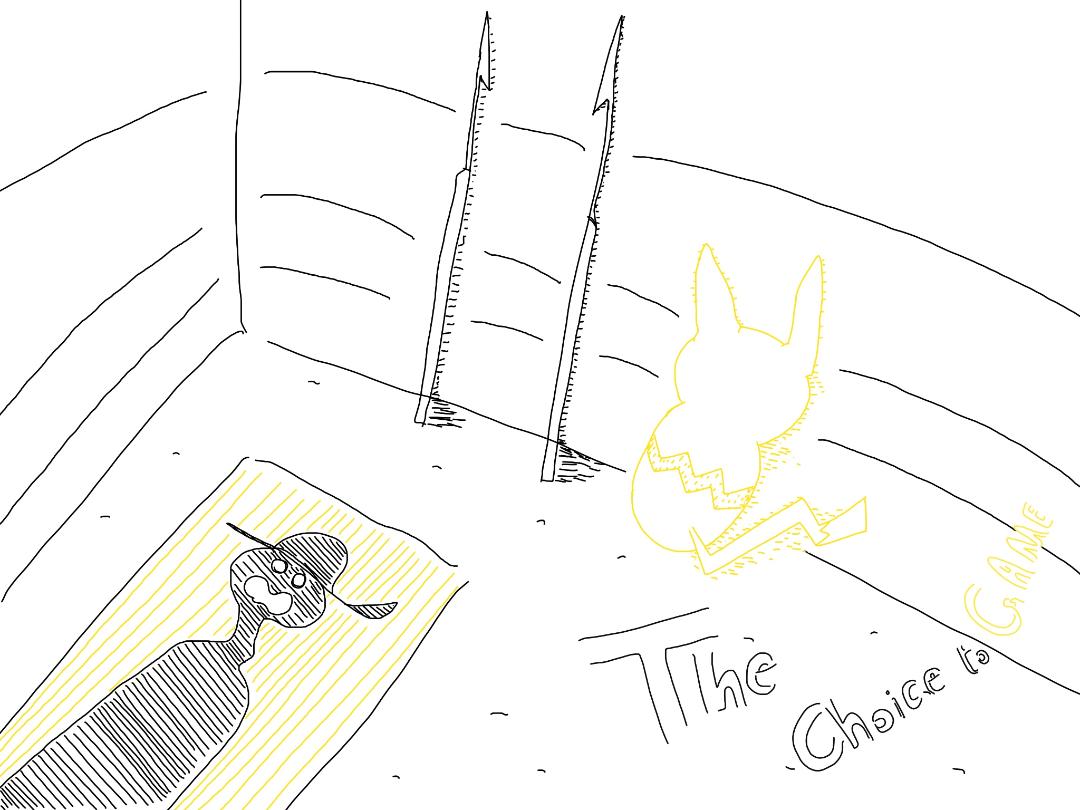
“Be considerate of the place… Be considerate of the time, man…”
Some people say these words as a means to get other people to reconsider their stand on a particular issue or the activity they are preforming. This type of interaction can take place in public circles, such as when some people stretch the limits of their freedom until ultimately affecting others, and in private ones also, such as in daily habits in family or work. Such an argument “be considerate of such and such” is normally said when the person in question does not mind the activity they are preforming and, on the contrary, finds it acceptable; the person issuing the argument hopes to “talk some sense” into the other person preforming the activity, and thus hopes to get them to stop doing it. But where did that argument come from in the first place?
It is important here to note to the reader that this article is about games and play, rather than anything else. So our concern is where are the people who raise the “be considerate” argument are coming from, what is the mental process that leads them to such an argument?
It is also important to be armed with some definitions to help us navigate the waters ahead:
- Ethics: Moral principles that govern a person’s behavior or the conducting of an activity.
- Play: Engage in activity for enjoyment and recreation rather than a serious or practical purpose.
- Conscience: A person’s moral sense of right and wrong, viewed as acting as a guide to one’s behaviour.
*(Definitions taken from Wikipedia)*
“How long do you intend on playing, young lad?”
For the longest time games were looked at as a secondary occupation one can engage in; they were supposed to be the filler in which one passes time with between daily responsibilities and school or job. However as many of us grew from children who pass time after school playing games to adults who develop them, and as games became the media that caters to not just the young but also the old, the question then changed from: “is this what you should be doing now, young lad?” To: “Are there limits to what game consumption can mean depending on the time or place?” (Since as adults there are mostly no upper authorities asking us questions and limiting our game sessions. So we as adults then might turn and ask ourselves the questions). Are there games that are just not appropriate for a particular period of the day or a particular place? As adults, such questions should pop-up in one’s mind from time to time… And what happens if we see someone not asking themselves such a question? Why, we of course revert to the old argument: “Be considerate of the place, be considerate of the time, man…”
Ready, Pikachu and friends? GO!
The talk about games and day to day life inevitably brings to light the phenomenon that conquered the world 2 years ago. Pokemon GO was (and to many still is) a huge time sink, where people take to the streets and walk athletic kilometers towards the sun-setting ultimate goal: catching them all!
Such a phenomenon of course brought with it it’s fair share of problems and the developer of the game (Niantic Inc.) had to address with the game release. From what is written thus far, you can assume that the type of problems they addressed and that will be mentioned here are not those commonly associated with games, such as normal gameplay balance or bug issues. The problems of interest are those that were tied to specific places and landmarks, the “Be considerate of the place…” side of the argument mentioned above comes to the spotlight here.
Such instances where those sneaky Pokemon were for once not wanted were:
- In the Hiroshima bomb museum in Japan, where that location was a spawning point for the Pokemon Koffing.
- The memorial for victims of the 1855 yellow fever epidemic in the US was desegnated as a Pokemon GYM where players would come and test their skills as Pokemon trainers.
- Looking more towards our own corner, many complaints arose when people started hunting for Pokemon in hospitals, hotels, private properties, etc… It has become an issue so much so that many Arabic websites posted notifications as means to warn against such activities, websites such as Pro3xplain and castle-tips (both webpages are in Arabic).
Of course there are many other examples, but the point of mentioning the Pokemon example here is to support that first part of the argument mentioned; “Be considerate of the place… Man…”. While examining the evidence surrounding the cases this consideration argument normally grows in, no clear global example similar to Pokemon GO arose that supports the second part of the argument: consideration of the time, so maybe it is best to ask the adult reader to evaluate the credibility of the second part of the argument themselves; during the month of fasting for example, are there times where one would not wish to play games, times that one would normally play in otherwise? and more importantly; are there games that one would not play during such a special time, for them being too graphic, explicit, or violent?
These questions ultimately pour into the examination of play and ethics; as the flexibility of one’s moral sense of right and wrong is known to be questioned at times, does it also alter the choice of play? while a spatial (location based) examination provided context where games should not be played based on the common public understanding and moral sense of right and wrong, a temporal (time based) examination of the same issue can help shed more light on the type of relation games have with ethics. And wether or not such spatial or temporal triggers can have a lasting effect on play habits.


Recent Comments